Anpassungsfähigkeit und Resilienz des Finanzsystems
Diese Forschungsgruppe untersucht kritische Aspekte der Anpassungsfähigkeit und Widerstandsfähigkeit von Finanzsystemen. Sie analysiert die Auswirkungen von Naturkatastrophen auf Finanzsysteme, die Auswirkungen politischer Präferenzen für die grüne Transformation und die Bedeutung von Kultur in den Volkswirtschaften.
Forschungscluster
Finanzresilienz und RegulierungIhr Kontakt

Mitglied - Abteilung Finanzmärkte
PROJEKTE
07.2016 ‐ 12.2018
Relationship Lenders and Unorthodox Monetary Policy: Investment, Employment, and Resource Reallocation Effects
Leibniz-Gemeinschaft
We combine a number of unique and proprietary data sources to measure the impact of relationship lenders and unconventional monetary policy during and after the European sovereign debt crisis on the real economy. Establishing systematic links between different research data centers (Forschungsdatenzentren, FDZ) and central banks with detailed micro-level information on both financial and real activity is the stand-alone proposition of our proposal. The main objective is to permit the identification of causal effects, or their absence, regarding which policies were conducive to mitigate financial shocks and stimulate real economic activities, such as employment, investment, or the closure of plants.
01.2015 ‐ 12.2019
Interactions between Bank-specific Risk and Macroeconomic Performance
Deutsche Forschungsgemeinschaft (DFG)
Referierte Publikationen
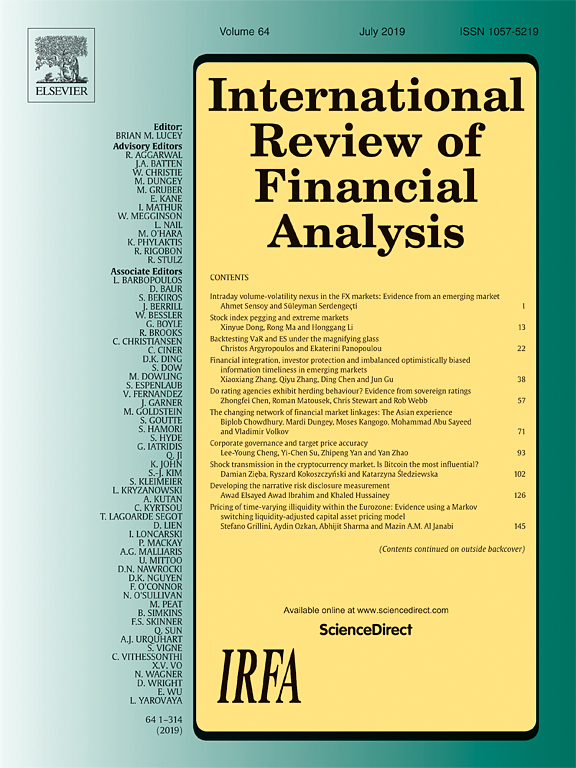
The Real Impact of Ratings-based Capital Rules on the Finance-Growth Nexus
in: International Review of Financial Analysis, January 2021
Abstract
We investigate whether ratings-based capital regulation has affected the finance-growth nexus via a foreign credit channel. Using quarterly data on short to medium term real GDP growth and cross-border bank lending flows from G-10 countries to 67 recipient countries, we find that since the implementation of Basel 2 capital rules, risk weight reductions mapped to sovereign credit rating upgrades have stimulated short-term economic growth in investment grade recipients but hampered growth in non-investment grade recipients. The impact of these rating upgrades is strongest in the first year and then reverses from the third year and onwards. On the other hand, there is a consistent and lasting negative impact of risk weight increases due to rating downgrades across all recipient countries. The adverse effects of ratings-based capital regulation on foreign bank credit supply and economic growth are compounded in countries with more corruption and less competitive banking sectors and are attenuated with greater political stability.

Transactional and Relational Approaches to Political Connections and the Cost of Debt
in: Journal of Corporate Finance, December 2020
Abstract
This paper examines the economic effects of a firm's approach to developing and maintaining political connections. Specifically, we investigate whether lenders favor transactional connection as opposed to relational connection. By tracing firms in a politically volatile emerging democracy in Indonesia, we find that firms following a transactional political connection strategy experience a relatively lower cost of debt than those with a relational strategy. The effect is more pronounced for firms facing high financial distress. The finding is robust to cost of bank loans and a variety of regression methods. Overall, the evidence suggests that in times of frequently changing political regimes, firms benefit from a transactional relationship with politicians as it enables to update connection with the government in power. Relational connection is valuable for a firm only when the political regime connected with it gains power.
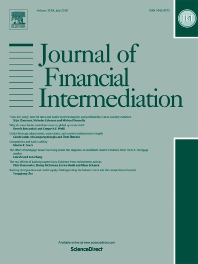
Borrowers Under Water! Rare Disasters, Regional Banks, and Recovery Lending
in: Journal of Financial Intermediation, July 2020
Abstract
We show that local banks provide corporate recovery lending to firms affected by adverse regional macro shocks. Banks that reside in counties unaffected by the natural disaster that we specify as macro shock increase lending to firms inside affected counties by 3%. Firms domiciled in flooded counties, in turn, increase corporate borrowing by 16% if they are connected to banks in unaffected counties. We find no indication that recovery lending entails excessive risk-taking or rent-seeking. However, within the group of shock-exposed banks, those without access to geographically more diversified interbank markets exhibit more credit risk and less equity capital.
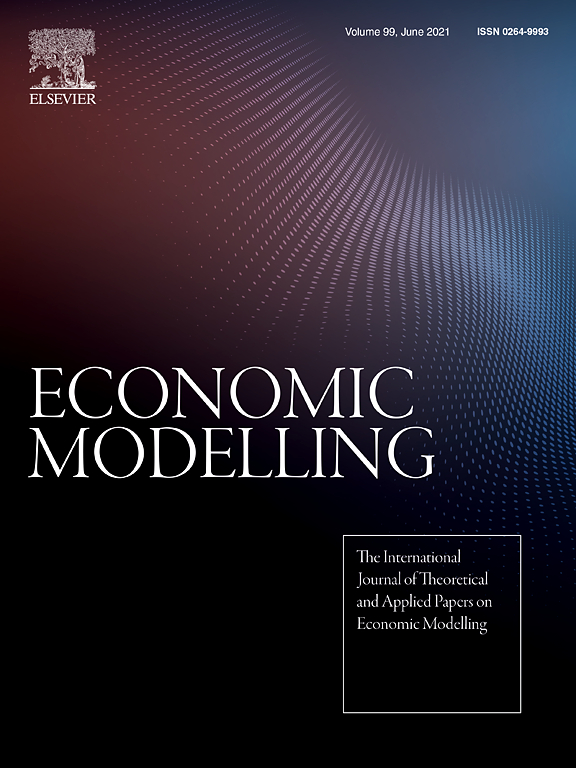
Cross-country Evidence on the Relationship between Regulations and the Development of the Life Insurance Sector
in: Economic Modelling, July 2020
Abstract
Using a global sample, this study sketches the impact of insurance regulations on the life insurance sector, revealing a significant negative association between supervisory control on policy conditions of life annuities as well as pension products and the development of the industry. A similar inverse relation is observed between the index of capital requirements and insurance development. These results hold when we control for demographic factors, economic factors, religious inclination, culture, as well as for other relevant regulations. We also find some evidence that while the overall supervisory power does not matter, the ability to intervene at an early stage could have a positive effect on insurance development. Additionally, the impact of some regulations appears to differ between advanced and developing countries.

Credit Allocation when Borrowers are Economically Linked: An Empirical Analysis of Bank Loans to Corporate Customers
in: Journal of Corporate Finance, June 2020
Abstract
Using detailed loan level data, we examine bank lending to corporate customers relying on principal suppliers. Customers experience larger loan spreads, higher intensity of covenants and greater likelihood of requiring collateral when they depend more on the principal supplier for inputs. The positive association between the customer’s loan spread and its dependence on the principal supplier is less pronounced when the bank has a prior loan outstanding with the principal supplier, and when the bank has higher market share in the industry. Longer relationships between the customer and its principal supplier, and between the bank and the principal supplier, mitigate lending constraints. The evidence is consistent with corporate suppliers serving as an informational bridge between the lender and the customer.
Arbeitspapiere
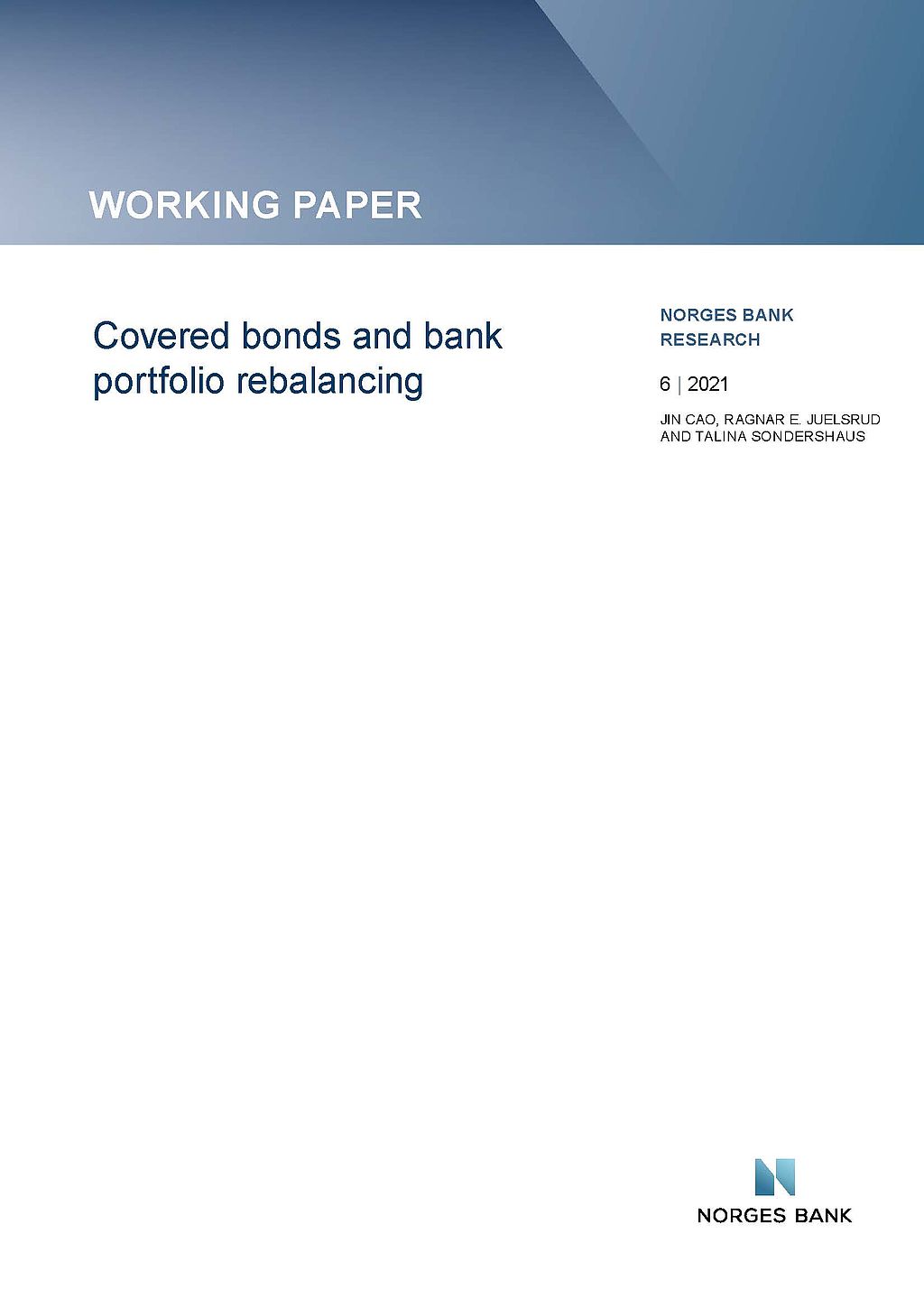
Covered Bonds and Bank Portfolio Rebalancing
in: Norges Bank Working Papers, Nr. 6, 2021
Abstract
We use administrative and supervisory data at the bank and loan level to investigate the impact of the introduction of covered bonds on the composition of bank balance sheets and bank risk. Covered bonds, despite being collateralized by mortgages, lead to a shift in bank lending from mortgages to corporate loans. Young and low-rated firms in particular receive more credit, suggesting that overall credit risk increases. At the same time, we find that total balance sheet liquidity increases. We identify the channel in a theoretical model and provide empirical evidence: Banks with low initial liquidity and banks with sufficiently high risk-adjusted return on firm lending drive the results.
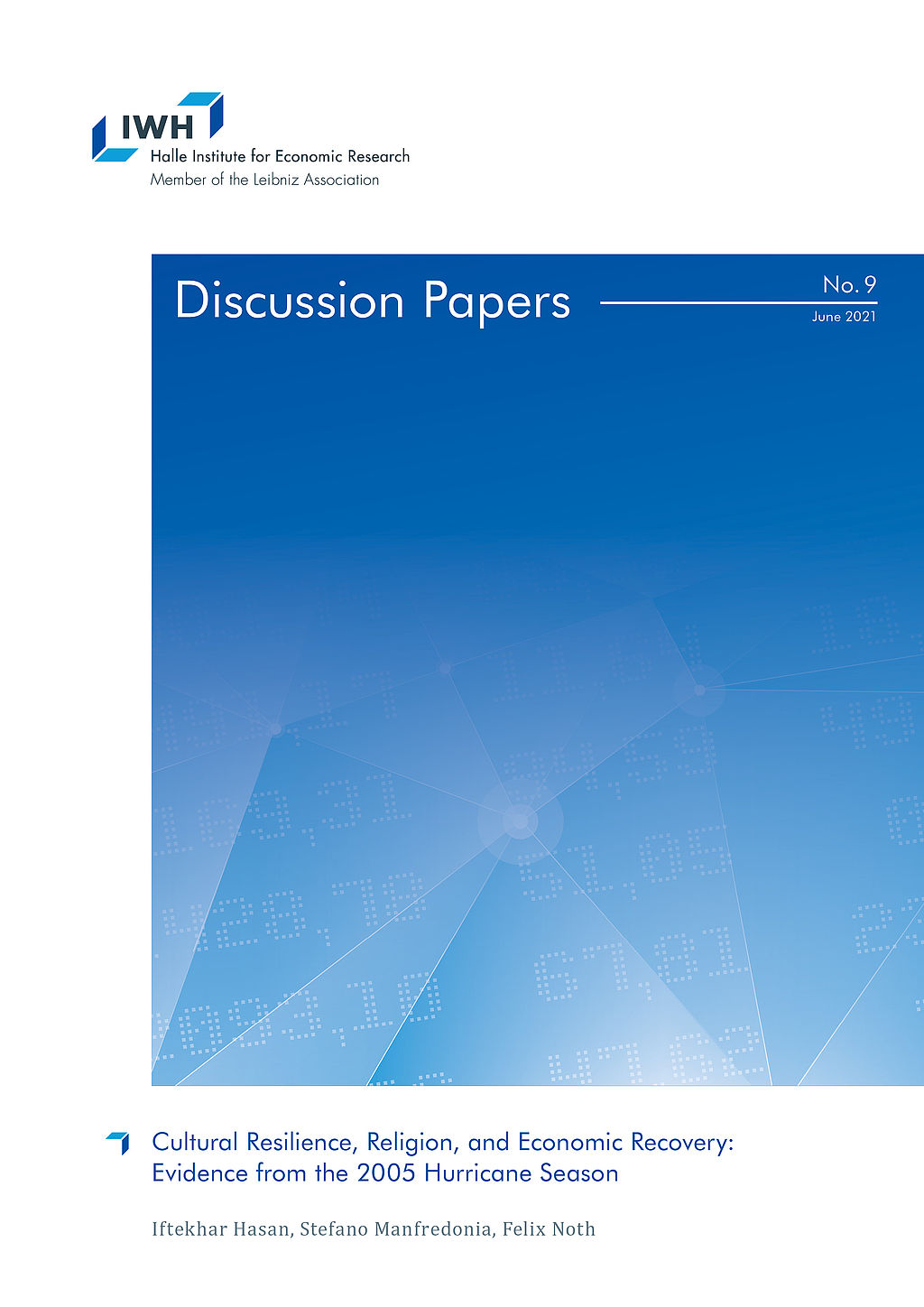
Cultural Resilience, Religion, and Economic Recovery: Evidence from the 2005 Hurricane Season
in: IWH Discussion Papers, Nr. 9, 2021
Abstract
This paper investigates the critical role of religion in the economic recovery after high-impact natural disasters. Exploiting the 2005 hurricane season in the southeast United States, we document that establishments in counties with higher religious adherence rates saw a significantly stronger recovery in terms of productivity for 2005-2010. Our results further suggest that a particular religious denomination does not drive the effect. We observe that different aspects of religion, such as adherence, shared experiences from ancestors, and institutionalised features, all drive the effect on recovery. Our results matter since they underline the importance of cultural characteristics like religion during and after economic crises.
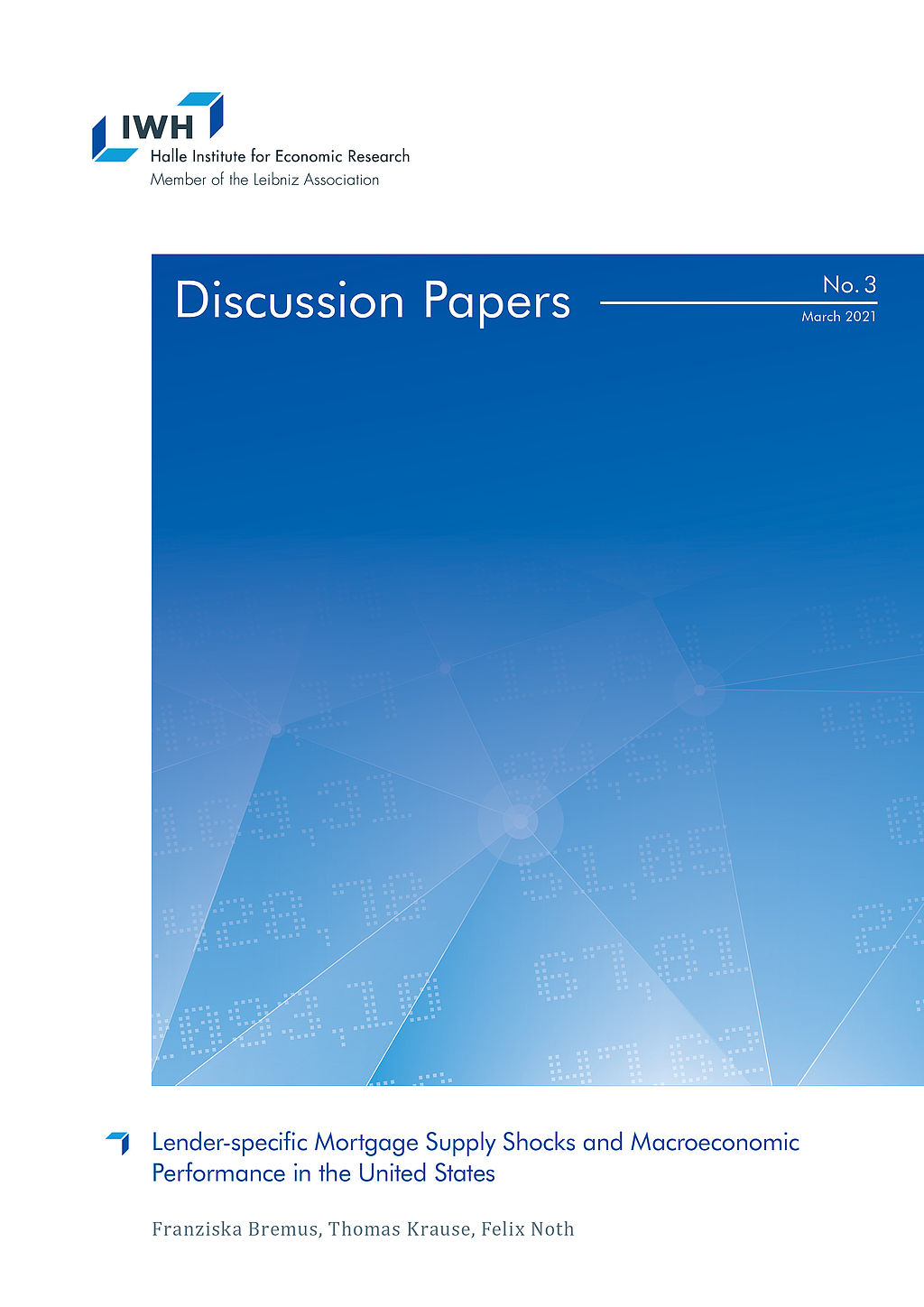
Lender-specific Mortgage Supply Shocks and Macroeconomic Performance in the United States
in: IWH Discussion Papers, Nr. 3, 2021
Abstract
This paper provides evidence for the propagation of idiosyncratic mortgage supply shocks to the macroeconomy. Based on micro-level data from the Home Mortgage Disclosure Act for the 1990-2016 period, our results suggest that lender-specific mortgage supply shocks affect aggregate mortgage, house price, and employment dynamics at the regional level. The larger the idiosyncratic shocks to newly issued mortgages, the stronger are mortgage, house price, and employment growth. While shocks at the level of shadow banks significantly affect mortgage and house price dynamics, too, they do not matter much for employment.
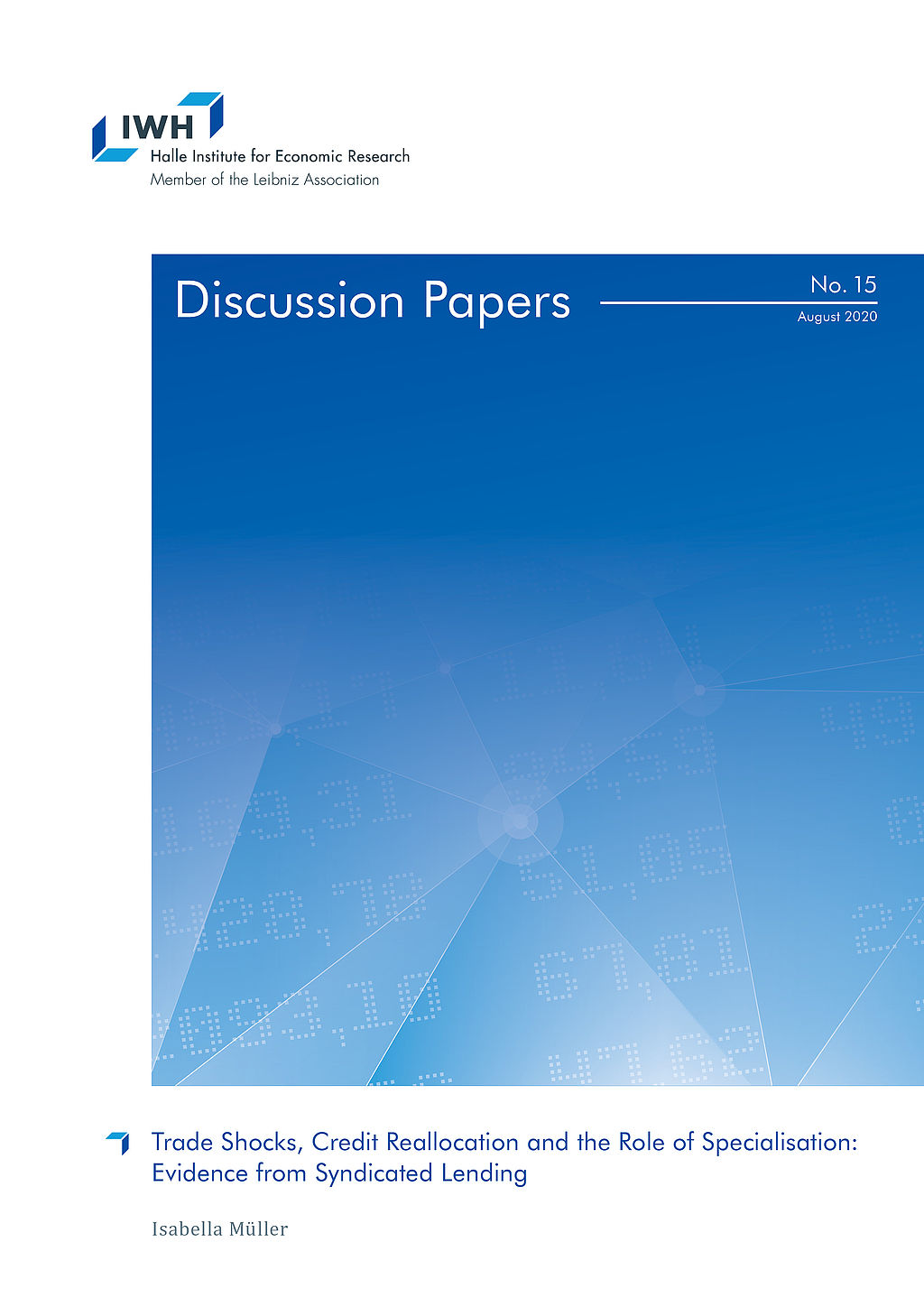
Trade Shocks, Credit Reallocation and the Role of Specialisation: Evidence from Syndicated Lending
in: IWH Discussion Papers, Nr. 15, 2020
Abstract
This paper provides evidence that banks cut lending to US borrowers as a consequence of a trade shock. This adverse reaction is stronger for banks with higher ex-ante lending to US industries hit by the trade shock. Importantly, I document large heterogeneity in banks‘ reaction depending on their sectoral specialisation. Banks shield industries in which they are specialised in and at the same time reduce the availability of credit to industries they are not specialised in. The latter is driven by low-capital banks and lending to firms that are themselves hit by the trade shock. Banks‘ adjustments have adverse real effects.
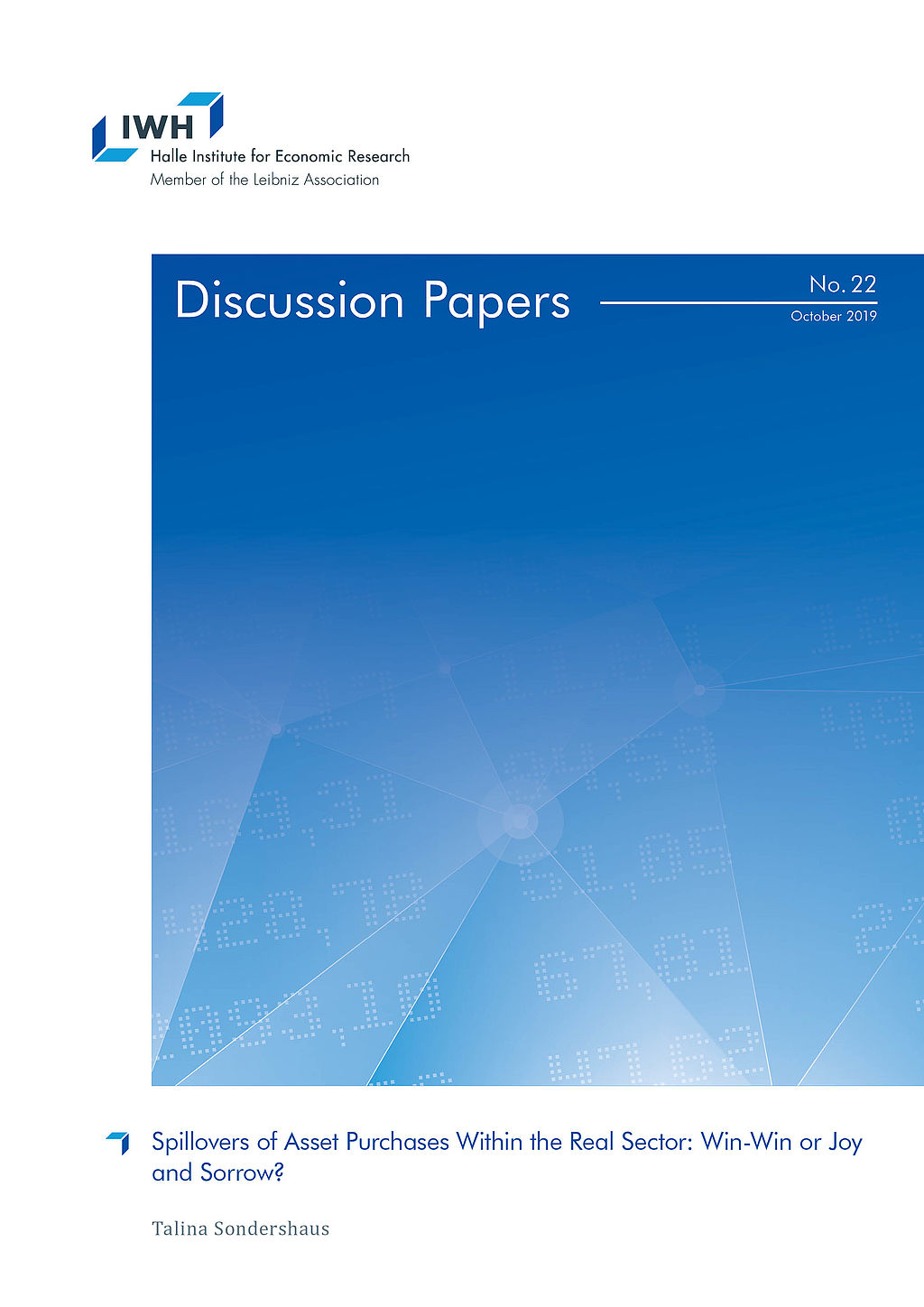
Spillovers of Asset Purchases Within the Real Sector: Win-Win or Joy and Sorrow?
in: IWH Discussion Papers, Nr. 22, 2019
Abstract
Events which have an adverse or positive effect on some firms can disseminate through the economy to firms which are not directly affected. By exploiting the first large sovereign bond purchase programme of the ECB, this paper investigates whether more lending to some firms spill over to firms in the surroundings of direct beneficiaries. Firms operating in the same industry and region invest less and reduce employment. The paper shows the importance to consider spillover effects when assessing unconventional monetary policies: Differences between treatment and control groups can be entirely attributed to negative effects on the control group.


















